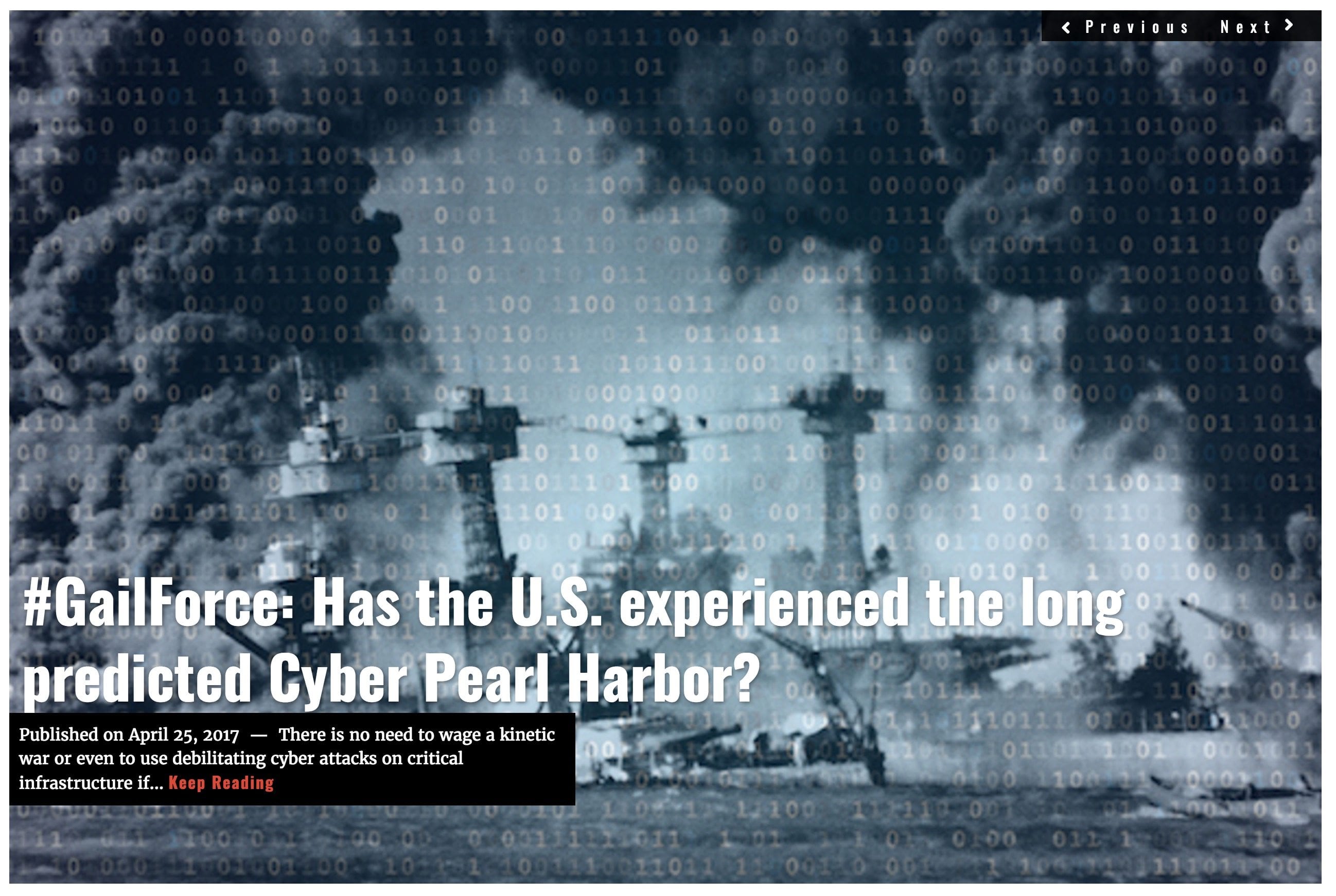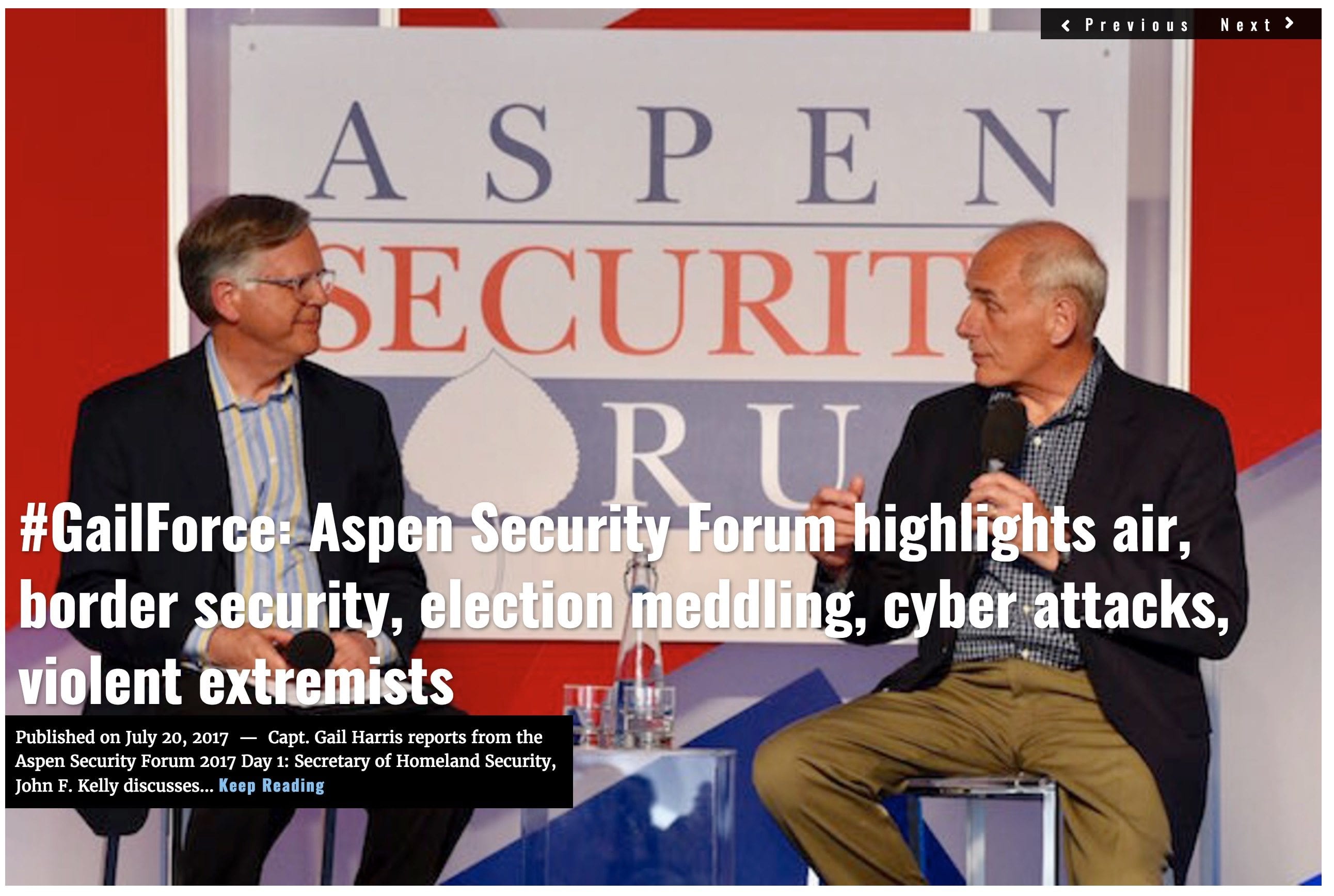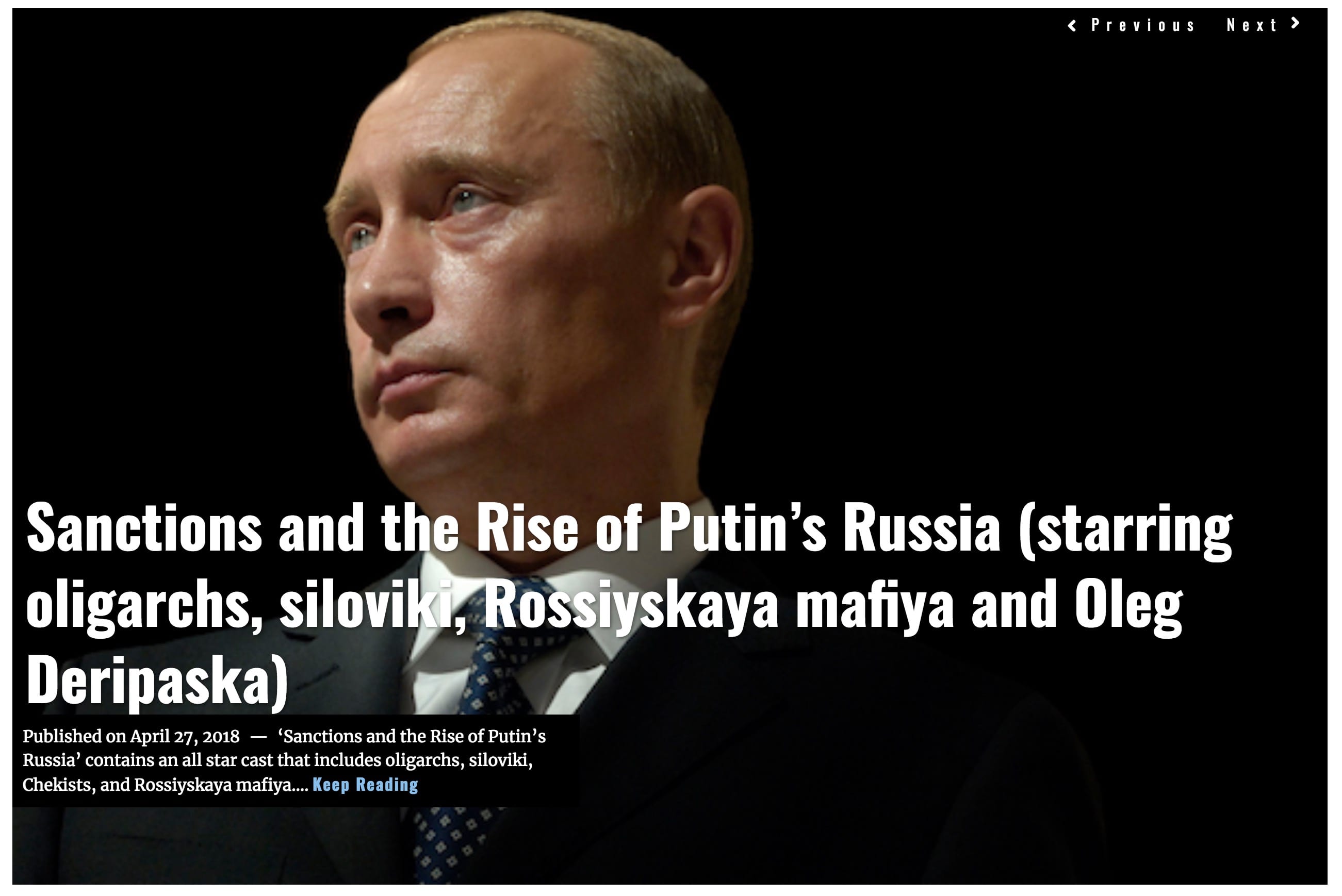The U.S. Intelligence community tells it like it is at the annual Aspen Security Forum.
A lie gets halfway around the world before the truth has a chance to get its pants on.
– Winston Churchill
This year’s annual Aspen Security Forum, hosted by the Aspen Institute, opened with a question and answer session with FBI Director, Christopher Wray, moderated by NBC News Anchor Lester Holt.
Holt did a great job asking Director Wray a variety of questions on different topics. Mainstream media coverage tended to focus on two points: Wray’s comments about the Intelligence Community Assessment concluding that Russia interfered in the 2016 election, and whether the Robert Mueller investigation was a witch hunt. More important, explained later on, was Wray’s discussion about countering information operations by using critical thinking.
In an obvious reference to the recent Trump/Putin meeting this week, Holt asked Director Wray if his view of the intelligence community’s assessment had changed.
“The Intelligence Community’s assessment has not changed. My view has not changed, which is that Russia attempted to interfere with the last election and that it continues to engage in malign influence operations to this day.” Russia’s aim? “[It is] aimed at sowing discord and divisiveness in this country.”
Director Wray continued.
“We haven’t yet seen an effort to target specific election infrastructure this time, but certainly other efforts what I would call malign influence operations are very active and we could be just a moment away from it going to the next level.”
While it’s critical to remind us, this is old news, and the only reason it’s still being talked about is Russia keeps denying it, President Trump still seems unconvinced, and many don’t understand how the intelligence community arrived at this analysis and wonder if the report is wrong. That is a whole subject in and of itself, but suffice it to say, in my 28 years of service I rarely saw instances where all 17 intelligence agencies agreed on a subject. The evidence had to be compelling for all to come to that conclusion.
Well Hello, we’re already at war on the Cyber front with Russia. The problem is there’s still no universally accepted definition of what constitutes a cyber act of war or even what is a cyber attack https://t.co/2dScRdMNGl
— Capt. Gail Harris (@GailHarrisLC) July 19, 2018
I’ve been doing a lot of speaking on this topic and most people are unaware that the interference in our election is just one of many instances of influence operations worldwide and part of an overall attempt by Russia to weaken the NATO Alliance. You can judge for yourself and read the unclassified version of the Intelligence Community Assessment here.
As Director Wray emphasized, the Russians are still at it. For instance, in March 2018 the FBI and Department of Homeland Security issued a joint alert stating:
Since at least March 2016, Russian government cyber actors – hereafter referred to as “threat actors” – targeted government entities and multiple U.S. critical infrastructure sectors, including the energy, nuclear, commercial facilities, water, aviation, and critical manufacturing sectors.
Just this week, in a remarkable response to the Trump/Putin meeting, Director of National Intelligence Dan Coats released a statement, press release style, stating:
“The role of the Intelligence Community is to provide the best information and fact-based assessments possible for the President and policymakers. We have been clear in our assessments of Russian meddling in the 2016 election and their ongoing, pervasive efforts to undermine our democracy, and we will continue to provide unvarnished and objective intelligence in support of our national security.”
Director Coats, who spoke today at the forum, reaffirmed the direct link between President Vladimir Putin and Russian interference in the 2016 election, stating:
“Anybody who thinks that Vladimir Putin doesn’t have his stamp on everything that happens in Russia is misinformed. It is very clear that virtually nothing happens there of any kind of consequence that Vladimir Putin doesn’t know about or hasn’t ordered.”
“Anybody who thinks that Vladimir Putin doesn’t have his stamp on everything that happens in Russia is misinformed. It is very clear that virtually nothing happens there of any kind of consequence that Vladimir Putin doesn’t know about or hasn’t ordered” —DNI Coats #AspenSecurity pic.twitter.com/AOZTX0H97t
— Aspen Security Forum (@AspenSecurity) July 19, 2018
Director Wray further emphasized that Russia is “a threat that we need to take very seriously and respond to with fierce determination.”
In my 28 years of service I rarely saw instances where all 17 intelligence agencies agreed on a subject.
When asked if he thought the Mueller investigation was a witch hunt, Wray responded, “I’ve been consistent. I get asked this a lot. I do not believe Special Counsel Mueller is on a witch hunt. I think it’s a professional investigation conducted by a man that I’ve known to be a straight shooter in all of my interactions with him in my past life in government and certainly since then.”
“The best weapon against propaganda and misinformation and information warfare is information.” —@FBI Director Wray https://t.co/N3WwEcYZVh #AspenSecurity pic.twitter.com/9N3wVQdjxT
— Aspen Security Forum (@AspenSecurity) July 19, 2018
Also at Aspen today was Kirstjen Nielsen, Secretary of Homeland Security. She was asked by Peter Alexander of NBC if she believed the Intel Community Assessment on 2016 elections. Secretary Nielsen said she believes the results, but pushed back on whether the Russian activities were an attempt to favor either party. Alexander must have spent 10 minutes asking that same question in a variety of ways. It appeared he was trying to trap her into criticizing President Trump.
I asked Secretary Nielsen how well cyber incident sharing was going between the Department of Homeland Security and private industry. She said it was improving, and mentioned they are having an upcoming Cyber Summit with private industry. The issue is that most of the critical infrastructure is in the hands of private industry. Former head of the NSA and US Cyber Command, Admiral Rogers famously said he can’t defend networks he can’t see.
I asked @SecNielsen how well cyber incident sharing was going between @DHSgov & private industry: “Improving” citing #CyberSummit. Most critical infrastructure is in the hands of private industry. Fmr NSA/CYBERCOM Adm. Rogers famously said he can't defend networks he can't see
— Capt. Gail Harris (@GailHarrisLC) July 19, 2018
The Psychology of Intelligence Analysis
One of the most important comments FBI Director Wray made was how to counteract influence operations. The best weapon? Information and critical thinking. Wray cautioned against believing everything you read, and that sources must be checked.
Most intelligence officers spend a lot of time developing the skill set of critical thinking. If the media incorrectly reports on an event or issue, the result may be a retraction or someone may get fired. The vast majority of the intelligence community’s effort goes towards support of military operations. If you’re wrong, someone could die. An analyst can also send the military down the wrong strategy path by not properly identifying a threat.
The best book I read on this support was Psychology of Intelligence Analysis by Richards J. Heuer, a member of the CIA. In it he states:
- What people perceive, how readily they perceive it, and how they process this information after receiving it are all strongly influenced by past experience, education, cultural values, role requirements, and organizational norms, as well as by the specifics of the information received.
- To see the options faced by foreign leaders as these leaders see them, one must understand their values and assumptions and even their misperceptions and misunderstandings.
- Without such insight, interpreting foreign leaders’ decisions or forecasting future decisions is often nothing more than partially informed speculation.
- Too frequently, foreign behavior appears “irrational” or “not in their own best interest.”
- Such conclusions often indicate analysts have projected American values and conceptual frameworks onto the foreign leaders and societies, rather than understanding the logic of the situation as it appears to them.
You can read the entire book for free here.
The best example I can give of this process and ramifications happened while I was at the Naval War College during the Cold War. President Reagan made it a requirement for the Navy to test drive proposed war plans at the Navy War College. I was part of the Red Team whose job was to respond to these plans as we believed the Soviet Navy would.
The number one priority of the Soviet Navy was to protect their ballistic missile submarines. US Admirals had a hard time believing that because that would not be the number one priority for them. Why is this important? We develop our war plans and decide strategy and what weapons, tactics, techniques, and procedures based on what we believe the threat is and how enemies and potential enemies use their forces. The intelligence community was finally able to convince the US Navy heavies, but it was challenging at times. I don’t think I’ve ever been yelled at more in my life then my time there trying to get that point across during numerous war games.
Yesterday @AspenSecurity announced that General John Hyten, Commander @US_Stratcom had to cancel a planned appearance. Today @DefenseOne is speculating this may be part of the fallout from the uncertainty in national defense strategy caused by the #TrumpPutin summit …
— Capt. Gail Harris (@GailHarrisLC) July 19, 2018
Director Wray pointed out that what Russia is doing is identifying a divisive issue, and then spinning people up on both sides and watching us go at it. I began with a quote from Winston Churchill because I think it speaks to this issue.
I’ll conclude with snippets from the FBI Director that jumped out at me.
China as an Adversary
In response to a question as to whether Director Wray sees China as an adversary, and if so, on what levels, Wray responded:
- From a Counter Terrorism perspective in many ways it represents the broader most significant threat we face as a country, and for them it is a whole of state effort. It’s economic espionage as well as traditional espionage.
- The FBI has economic espionage investigations in all 50 states that trace back to China.
- The volume and pervasiveness of it is something this country cannot under estimate.
- China is trying to position itself as the sole dominant superpower and sole dominant economic power and replace the US in that role.
- Theirs is a long-term game that is focused on every industry and it also involves academia, research and development, agriculture, and high tech.
Terrorism
In response to a question about terrorism, Director Wray commented:
- The threat is not over, but it has changed. Online propaganda is focused on homegrown radicalized terrorists.
- There are some 1000 active investigations ongoing in all 50 states.
- In studying these cases there is a progression and point along the continuum where they go from being radicalized to mobilized.
In response to a question about what he would like to have been asked, the Director wondered why the media wasn’t covering all of the good things the FBI has done. Wray said the FBI has 37,000 men and women who are inspiring individuals to talk about. He mentioned one SWAT team member who had been shot in the arm, which happened to be the one he is most comfortable firing with. So, he learned to shoot with his other arm and requalified for a SWAT job.
Think I’ll end here. Got a big day tomorrow.
Gail Harris, Lima Charlie News
[Edited by Anthony A. LoPresti]
Captain Gail Harris (U.S. Navy, Ret.), was the highest-ranking African American female officer in the US Navy at the time of her retirement in 2001. Her 28 year career in intelligence included hands-on leadership during every major conflict from the Cold War, to El Salvador, to Desert Storm, to Kosovo, and she was at the forefront of one of the Department of Defense’s newest challenges, Cyber Warfare. Gail also writes for the Foreign Policy Association, is author of “A Woman’s War”, served as Senior Fellow for the George Washington Center For Cyber & Homeland Security (2015-2017) and is a Senior Advisor for the Truman National Security Project.
Follow Capt. Harris on Twitter @GailHarrisLC
Lima Charlie World provides global news, featuring insight & analysis by military veterans, intelligence professionals and foreign policy experts Worldwide.
For up-to-date news, please follow us on twitter at @LimaCharlieNews
In case you missed it:

![Image #GailForce: U.S. Intelligence community confirms ongoing Russian 'malign influence' operations at Aspen Security Forum [Lima Charlie News]](https://limacharlienews.com/wp-content/uploads/2018/07/GailForce-U.S.-Intelligence-community-confirms-ongoing-Russian-malign-influence-operations-at-Aspen-Security-Forum.jpg)





![Image Welcome to Jordan! A Den of Spies and Fajitas for Dinner [Lima Charlie News]](https://limacharlienews.com/wp-content/uploads/2018/09/Welcome-to-Jordan-A-Den-of-Spies-and-Fajitas-for-Dinner-480x384.png)
![Israel-Hamas Cyberwar, when old warfare meets new [Lima Charlie News]](https://limacharlienews.com/wp-content/uploads/2019/05/Israel-Hamas-cyber-warfare-01-e1558501438770-480x384.jpg)
![Image Huawei – China’s telecom giant hits a giant wall [Lima Charlie News]](https://limacharlienews.com/wp-content/uploads/2019/01/Huawei-–-China’s-telecom-giant-hits-a-giant-wall-480x384.png)
![Image U.S. 'Space Force' looking more and more like space reality [Lima Charlie News]](https://limacharlienews.com/wp-content/uploads/2018/08/Space-Force-looking-more-and-more-like-space-reality-480x384.png)
![Image GailForce: Blinking Red - Cyber War and Malign Influence Operations Today [Lima Charlie News][Graphic: Lima Charlie News]](https://limacharlienews.com/wp-content/uploads/2018/08/GailForce-Blinking-Red-Cyber-War-and-Malign-Influence-Operations-Today-Lima-Charlie-News-01-480x384.png)

